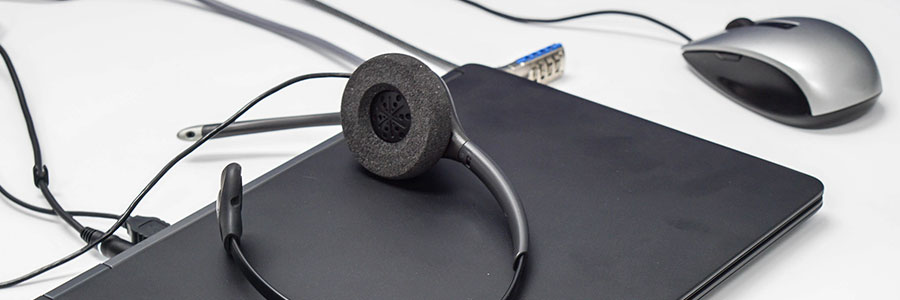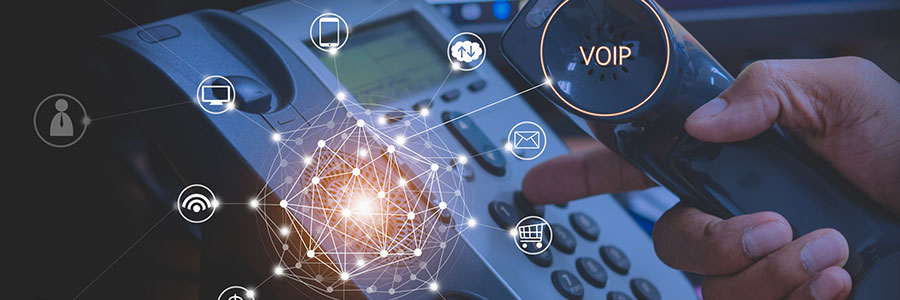Businesses today are well aware of the potential of Voice over Internet Protocol (VoIP) technology and its benefits. However, some business owners have yet to make the switch because of confusion over which VoIP service best fits their company’s needs.

Different VoIP services you should know about

Protect your VoIP system with these security measures
If your business uses Voice over Internet Protocol (VoIP), it’s important to make sure that your data is safe and secure. Luckily, there are many security measures that you can put in place to protect your VoIP system from criminal activity. To protect your VoIP phones, follow these tried-and-tested security measures.

How to keep your VoIP systems safe
While investing in Voice over Internet Protocol (VoIP) systems is known to help businesses reduce their telecommunication costs, failing to secure these can nullify the financial advantages gained and even lead to some serious consequences. If VoIP systems are left vulnerable, hackers can eavesdrop on your conversations and steal sensitive information.

Tips to minimize VoIP downtime and increase productivity
Although Voice over Internet Protocol (VoIP) systems are more dependable than traditional landlines, there’s always a chance of downtime since the whole network is connected to the internet. If your internet connection fails, so does your business phone service.

What are the costs associated with owning a VoIP system?
Voice over Internet Protocol (VoIP) systems are a more cost-effective alternative to traditional phone systems. For a fixed monthly bill, you get enterprise-grade business communication tools but without the expensive call rates of old landline telephones.

How to protect your business from TDoS attacks
Small businesses are increasingly moving from traditional telephones to Voice over Internet Protocol (VoIP) to save on costs. While VoIP offers many benefits, an unsecure system can leave your business vulnerable to a new kind of attack called telephony denial-of-service (TDoS). In this blog post, we will discuss what TDoS is and how you can […]

5G: What you need to know about the future of business VoIP systems
Fifth generation technology, or 5G, will significantly enhance the performance of your business’s Voice over Internet Protocol (VoIP) systems. That’s because 5G networks have much higher speeds, greater capacity, and reduced latency than 4G LTE networks.

What you need to know about VoIP theft of service
Did you know that theft of service is one of the most common types of fraud that affects Voice over Internet Protocol (VoIP) phone systems? VoIP theft of service is a serious issue that impacts businesses’ VoIP networks and can result in significant financial losses.

Keep callers on the line by using these VoIP features
Callers generally don’t like being put on hold for very long periods. But sometimes, your staff will have to put them on hold to verify their identity, find answers to their queries, or refer the call to a supervisor. One way to make sure callers do not feel abandoned while on hold is to use […]

5 Key security measures you need for VoIP
As a more convenient and less expensive alternative to traditional phone services, Voice over Internet Protocol (VoIP) technology is now a business necessity. But as with any other piece of technology that can connect to the internet, VoIP can and will be exploited by cybercriminals.

5 Steps for securing your VoIP systems
If your company’s Voice over Internet Protocol (VoIP) telephony systems are not equipped to weather disasters like wildfires and hurricanes, then they may fail when a calamity occurs. This could disrupt your operations and you may lose productivity, customers, and profit as a result.

Computing the ownership cost of a VoIP system
Voice over Internet Protocol (VoIP) systems are tried and tested tools for business agility and continuity, so it’s no wonder that many companies use them. But they also come with ownership costs that you should anticipate. Read on to learn more. Upfront costs Upfront costs are largely determined by the manner in which you acquire […]
- 1
- 2